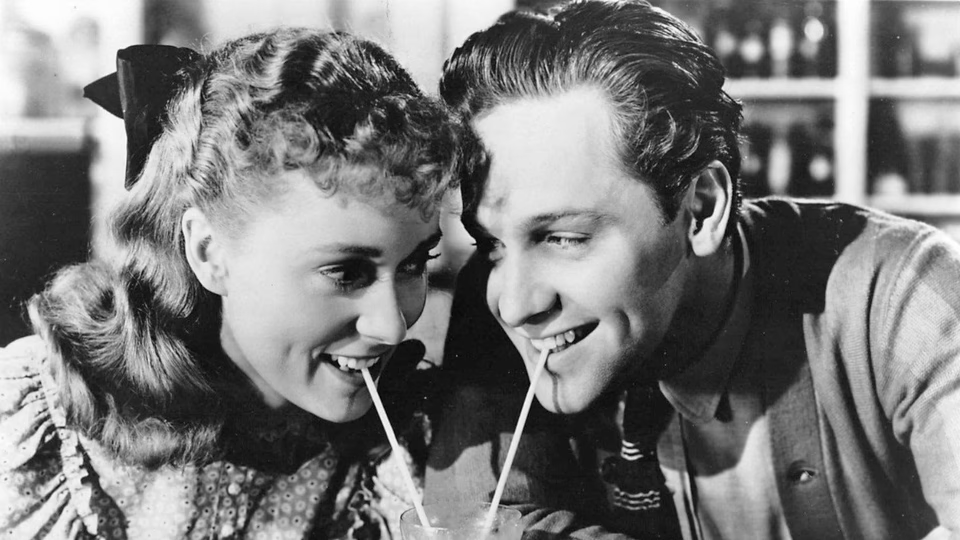Our Town

An adaptation of Thornton Wilder’s play chronicling turn-of-the-century life in a small New England town via two neighboring families, and their eldest children, played by William Holden and Martha Scott.
It opens with Holden and Scott as teens. Holden’s life revolves around baseball, but he soon discovers girls and, in turn, Scott, who frets about whether she’s pretty. Fast-forward three years for the second act featuring Holden and Scott’s wedding. Then the third act jumps forward nine more years as they prepare for a child.
The screen adaptation delivers mixed results. The “stage manager” role translates well enough into an omniscient narrator who breaks the fourth wall to address the audience. Provided you can contextualize the early casual racism of “Polish town” where the “immigrants and Catholics” live, one could draw a through line from his folksy demeanor to the narrators of such Stephen King novels as `Salem’s Lot and Cujo.
But the adaptation breaks down when the narrator polls the audience for questions. The ensuing faux dialogue betrays the material’s stage origin. Things get worse when the third act devolves into an extended monologue by Scott.
Perhaps worst of all, however, are Holden and Scott themselves. Holden is twenty-two. Scott is twenty-eight. Both try to pass for naïve seventeen-year-olds. This might have worked on stage, but film’s intimacy betrays their mature features and knowing eyes. A scene where Holden buys Scott an ice cream soda and the pair talk around their feelings for one another elicits cringes for the wrong reasons.
If all this weren’t enough, the movie changes the play’s ending, robbing it of its resonance. Thornton Wilder has a screenwriting credit for the adaptation. Given his insistence play directors maintain a dry tone, I wonder what he thought of this performance.